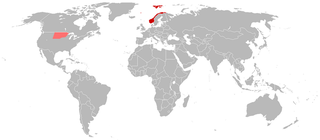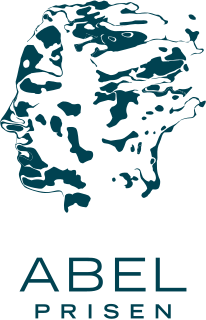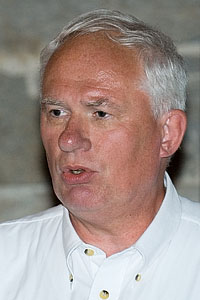The Institute for Comparative Research in Human Culture (Norwegian : Instituttet for sammenlignende kulturforskning) is a humanities research institute based in Oslo, Norway.

Norwegian is a North Germanic language spoken mainly in Norway, where it is the official language. Along with Swedish and Danish, Norwegian forms a dialect continuum of more or less mutually intelligible local and regional varieties, and some Norwegian and Swedish dialects, in particular, are very close. These Scandinavian languages, together with Faroese and Icelandic as well as some extinct languages, constitute the North Germanic languages. Faroese and Icelandic are hardly mutually intelligible with Norwegian in their spoken form because continental Scandinavian has diverged from them. While the two Germanic languages with the greatest numbers of speakers, English and German, have close similarities with Norwegian, neither is mutually intelligible with it. Norwegian is a descendant of Old Norse, the common language of the Germanic peoples living in Scandinavia during the Viking Era.

Humanities are academic disciplines that study aspects of human society and culture. In the Renaissance, the term contrasted with divinity and referred to what is now called classics, the main area of secular study in universities at the time. Today, the humanities are more frequently contrasted with natural, and sometimes social, sciences as well as professional training.
A research institute or research center is an establishment founded for doing research. Research institutes may specialize in basic research or may be oriented to applied research. Although the term often implies natural science research, there are also many research institutes in the social science as well, especially for sociological and historical research purposes.
It was established in 1922 by Fredrik Stang. An independent institute, its task is to sponsor research mainly in the fields of comparative linguistics, folklore, religion, ethnology, archaeology and ethnography. It shares localities with the Norwegian Academy of Science and Letters.

Fredrik Stang was a Norwegian law professor and politician for the Conservative Party. He served as a Member of Parliament, leader of the Conservative Party, Minister of Justice and the Police, Chairman of the Norwegian Nobel Committee, and Rector of The Royal Frederick University. His father was Prime Minister Emil Stang and his grandfather was Prime Minister Frederik Stang.
Comparative linguistics is a branch of historical linguistics that is concerned with comparing languages to establish their historical relatedness.

Folklore is the expressive body of culture shared by a particular group of people; it encompasses the traditions common to that culture, subculture or group. These include oral traditions such as tales, proverbs and jokes. They include material culture, ranging from traditional building styles to handmade toys common to the group. Folklore also includes customary lore, the forms and rituals of celebrations such as Christmas and weddings, folk dances and initiation rites. Each one of these, either singly or in combination, is considered a folklore artifact. Just as essential as the form, folklore also encompasses the transmission of these artifacts from one region to another or from one generation to the next. Folklore is not something one can typically gain in a formal school curriculum or study in the fine arts. Instead, these traditions are passed along informally from one individual to another either through verbal instruction or demonstration. The academic study of folklore is called Folklore studies, and it can be explored at undergraduate, graduate and Ph.D. levels.
The board of directors consists of Per Kværne (chair), Arne Bugge Amundsen, Ivar Børklund, Tove Fjell, Ingar Kaldal, Svein Mønnesland and Aud Talle. At any given time, three of the board members are appointed by the Norwegian Academy of Science and Letters; the other four are appointed by the universities of Oslo, Bergen, Trondheim and Tromsø respectively.
Per Kværne is a prominent Norwegian tibetologist and historian of religion.
Svein Karl Mønnesland is a Norwegian Slavist.
Aud Talle was a Norwegian social anthropologist.







